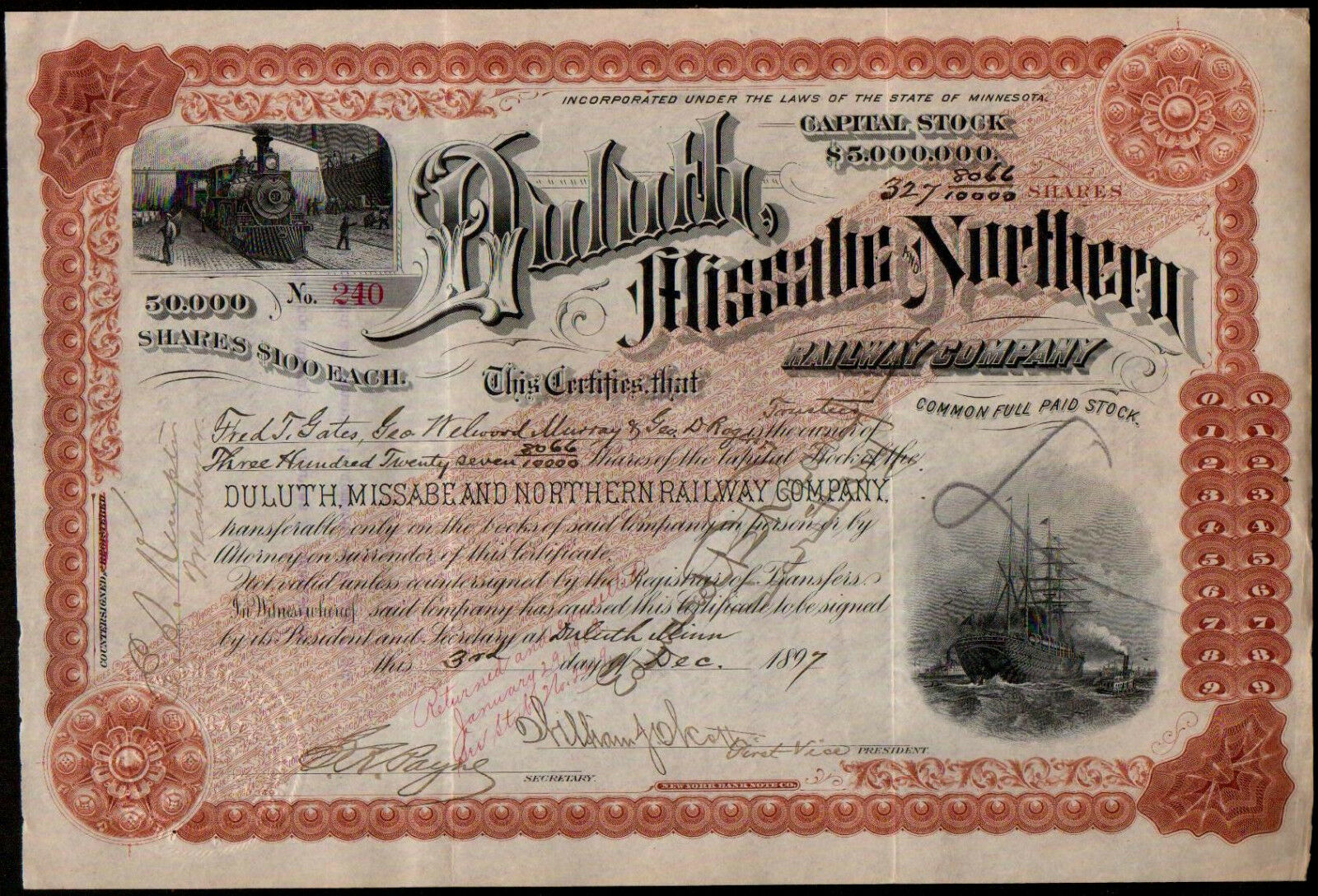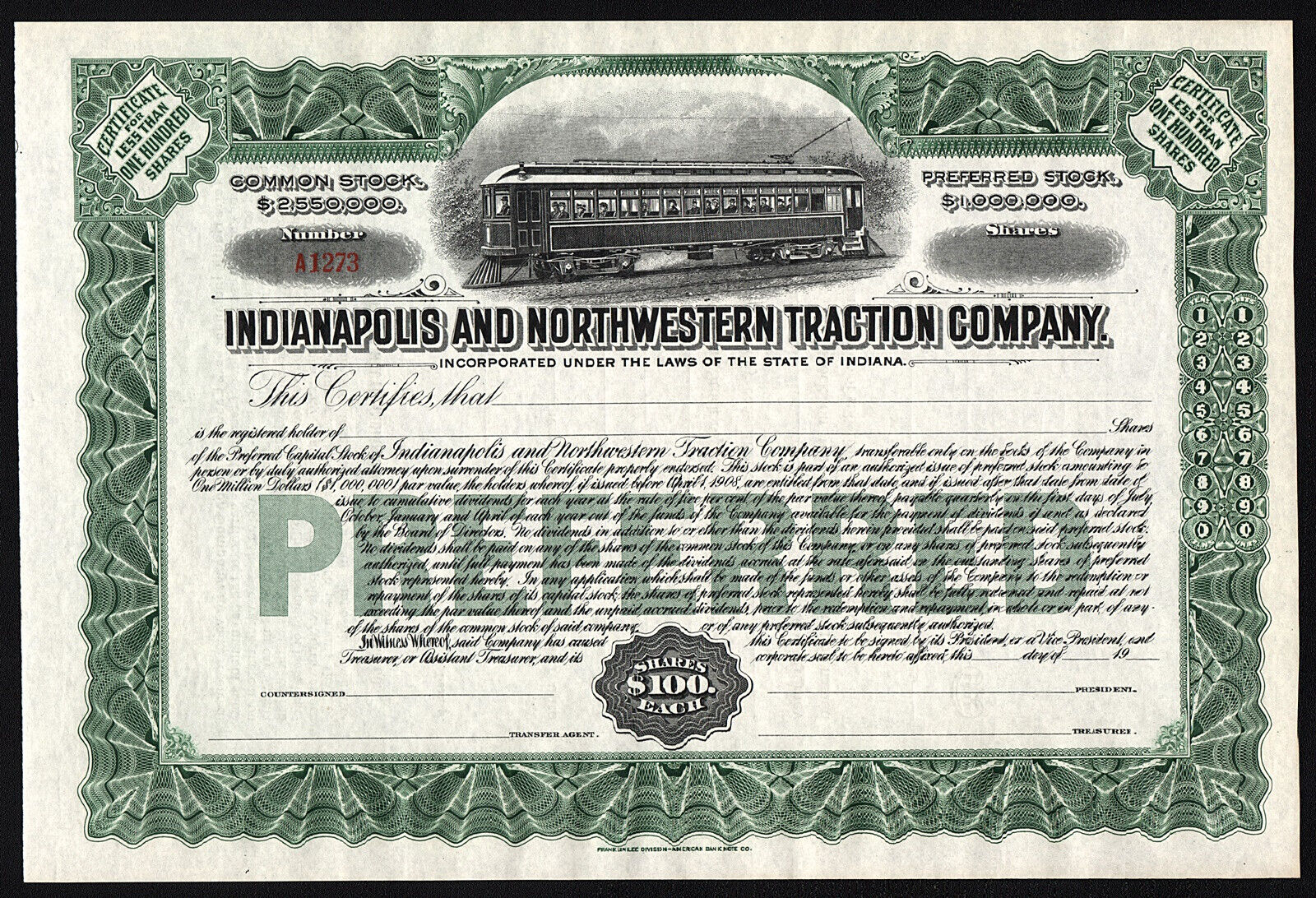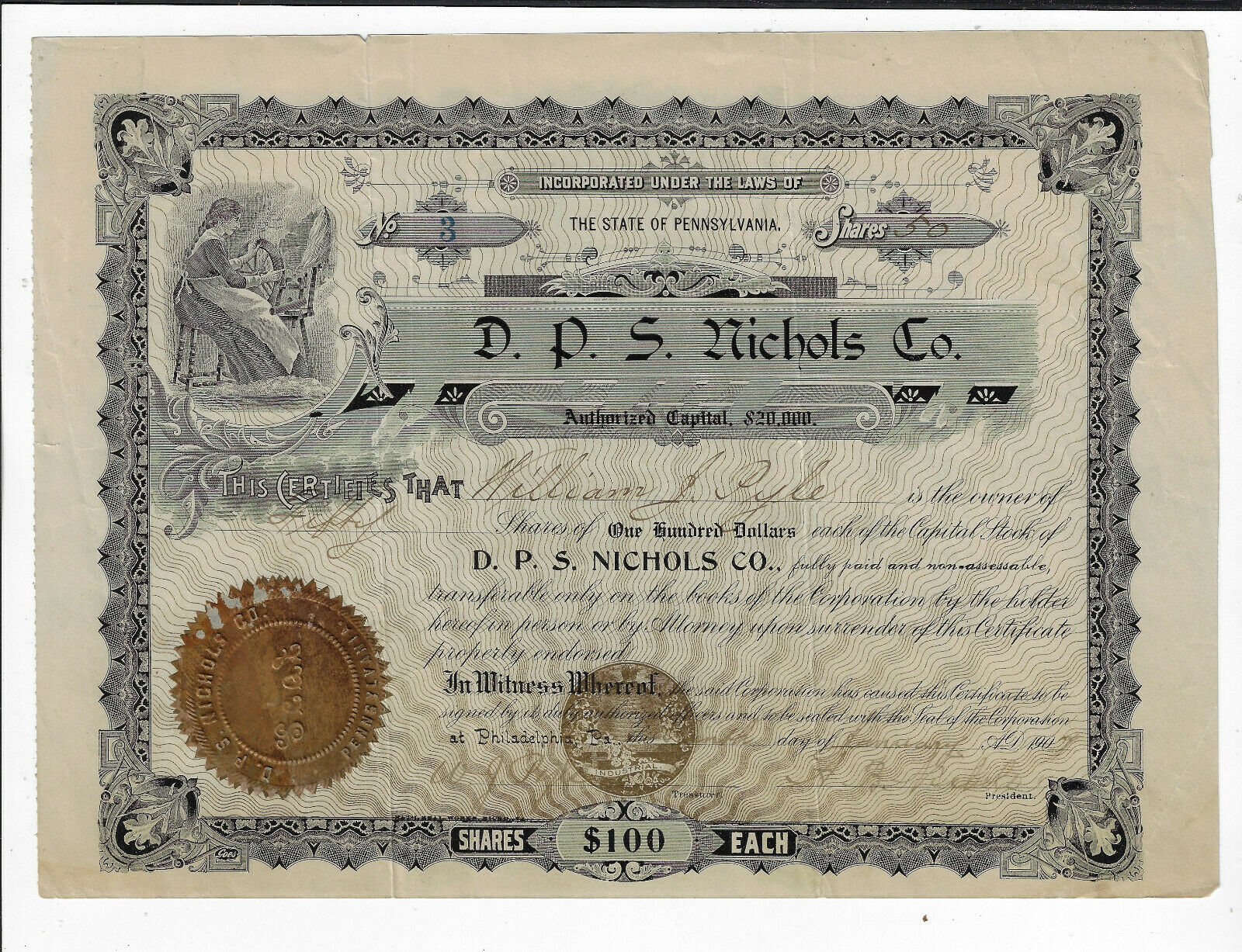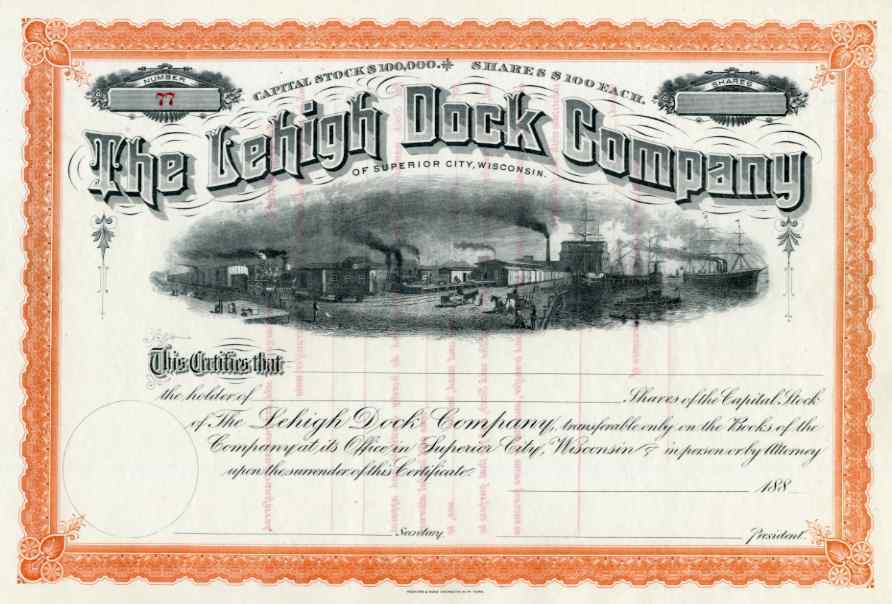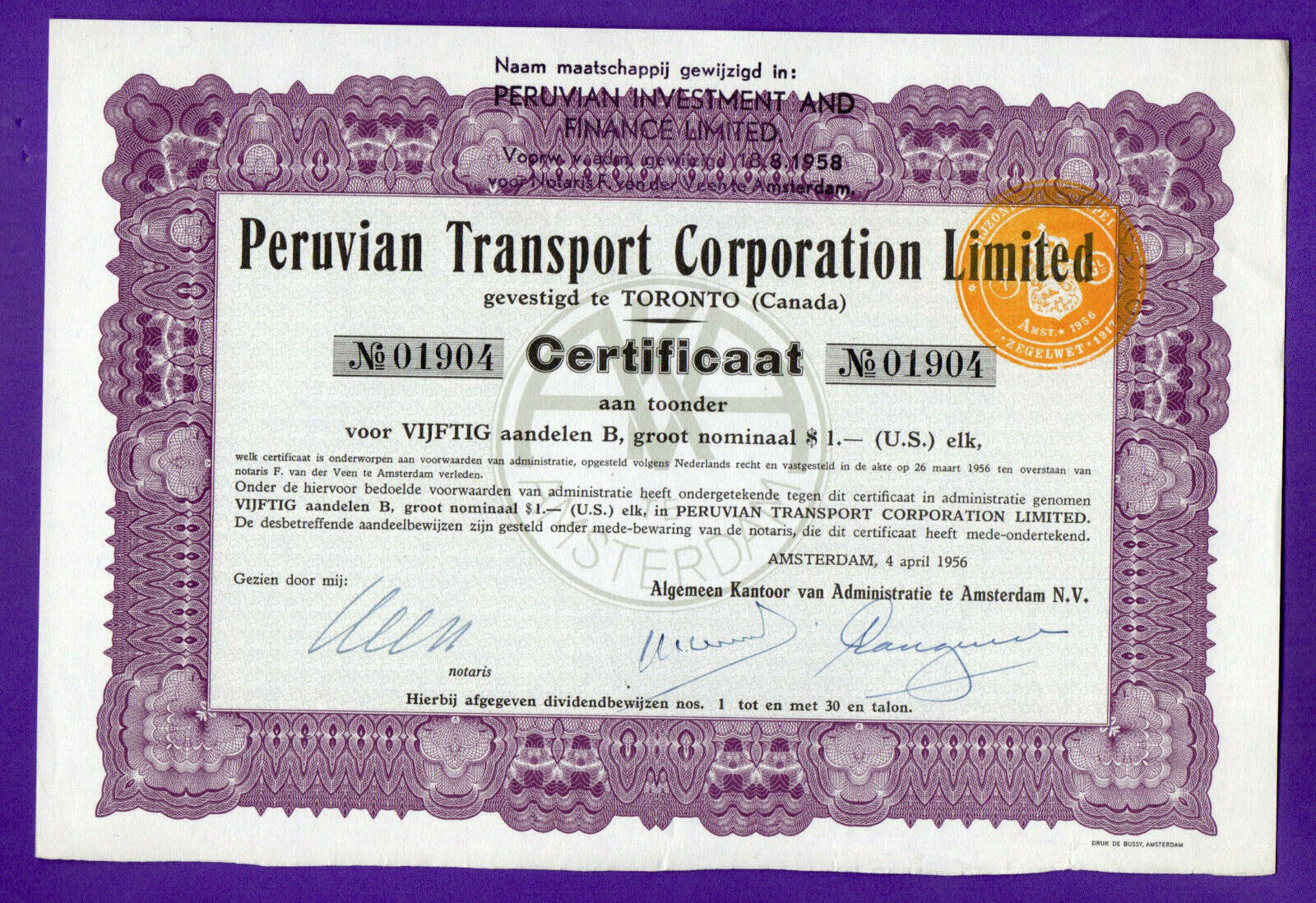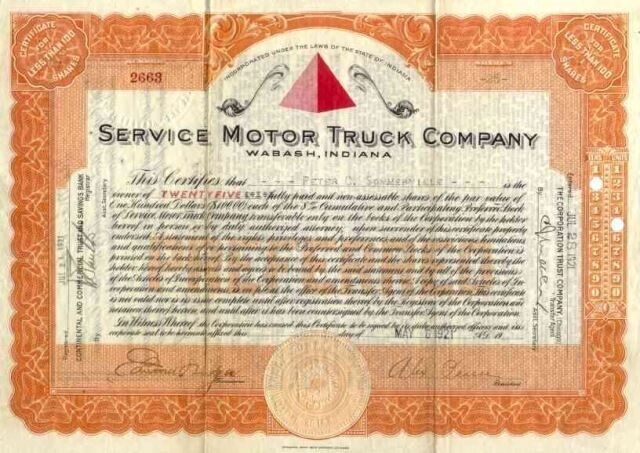-40%
1897 Fred T Gates John D Rockefeller Financial Advisor Duluth Stock Certificate
$ 366.96
- Description
- Size Guide
Description
Portrait of Frederick T. Gates.Frederick Taylor Gates (1853–1929) was an American
Baptist
clergyman, educator, and the principal business and philanthropic advisor to the major oil industrialist and philanthropist
John D. Rockefeller
, Sr., from 1891 to 1923.
Standard Oil
Gates then became Rockefeller's key philanthropic and business adviser, working in the newly established
family office
in
Standard Oil
headquarters at
26 Broadway
, where he oversaw Rockefeller's investments in a series of investments in many companies, but not in his personal stock in the Standard Oil Trust.
From 1892 onwards, faced with his ever expanding investments and real estate holdings, Senior crucially recognized the need for professional advice and so he formed a four-member committee, later including his son,
John D. Rockefeller, Jr.
, to manage his money, and nominated Gates as its head and as his senior business adviser. In this capacity Gates steered Rockefeller money predominantly to syndicates arranged by the investment house of
Kuhn, Loeb & Co.
, and, to a lesser extent, the house of
J. P. Morgan
.
[
1
]
Other roles
Gates served on the boards of many companies in which Rockefeller had a majority shareholding; Rockefeller at that time held a securities portfolio of unprecedented size for a private individual. Although Gates is recognized today as a philanthropic advisor, in fact Rockefeller himself regarded him as the greatest businessman he had encountered in his life, skipping such prominent figures of the time as
Henry Ford
and
Andrew Carnegie
.
[
2
]
When he ceased being a business advisor to Rockefeller in 1912, he continued to advise him and his son,
John D. Rockefeller, Jr.
, on philanthropic matters, at the same time serving on many corporate boards. He also served as president of the
General Education Board
, which was subsequently merged into other
Rockefeller family
institutions.
Philanthropy
Gates focused exclusively on philanthropy after 1912. He moved Rockefeller from doling out retail sums to specific recipients to the wholesale process of setting up well-funded foundations that were run by experts who decided what topics of reform were ripe. In all Gates supervised the distribution of about a half-billion dollars. Although Rockefeller himself believed in folk medicine, the billionaire listened to his experts, and Gates convinced him that he could have the greatest impact by modernizing medicine—especially by reforming education, sponsoring research to identify cures, and systematically eradicating debilitating diseases that sapped national efficiency, like hookworm.
In 1901 Gates designed the
Rockefeller Institute for Medical Research
(now
Rockefeller University
), of which he was board president. He then designed the
Rockefeller Foundation
, becoming a trustee upon its creation in 1913. Gates served as president of the
General Education Board
, which became the leading foundation in the field of education.
By 1912, however,
John D. Rockefeller, Jr.
was taking control of philanthropic policies, with Gates slipping to second place. Although Gates never quite lost his religion,
[
3
]
he began shifting the direction from religious charities to decidedly more secular pursuits like medical research and education. Gates designed the
China Medical Board
(CMB) in 1914. Rather than viewing China through the traditional missionary lens of millions of heathens to be converted, Gates placed his faith in science. He complained the missionaries in China were trapped in the "bondage of tradition and an ignorance and misguided sentiment in the supporting churches."
[
4
]
They had made few converts and fumbled the opportunity to spread Western science. There were hundreds of medical missionaries but they linked Western medical "miracles" to the teachings of Christianity. Instead of focusing on preventive health they urged sick and dying patients to convert. Gates planned to take over the Peking Union Medical College and retrain missionaries there. Working at the intersection of philanthropy, imperialism, big business, religion, and science, the
China Medical Board
was his last major project.
In 1924 Gates overreached, asking the Rockefeller Foundation Board to invest 5 million in the China Medical Board. The fantastic sum would make Chinese medical care the finest in the world, and would eliminate denominationalism influence from the practice of medicine and charity work in China. The Board refused and Gates became a victim of his own progressive emphasis on the "rule of experts;" the experts on China and medicine disagreed with him, he was marginalized and resignation from the CMB.
[
5
]
Gates was a
progressive
and committed to the
Efficiency Movement
. He looked for leverage whereby a few millions of dollars would generate significant changes, as in the creation of a new university, the eradication of hookworm because it reduced efficiency, or the revolution in hospitals caused by the
Flexner Report
.
[
6
]
A
ntique Original Vintage Stock Certificate - VERY RARE - only a very few are issued -
please see my other listings as i will be selling many hundreds of wonderful stocks and bonds and Autographed Letters Stocks and other Documents - from an Old Time Collection over the next year - thanks
